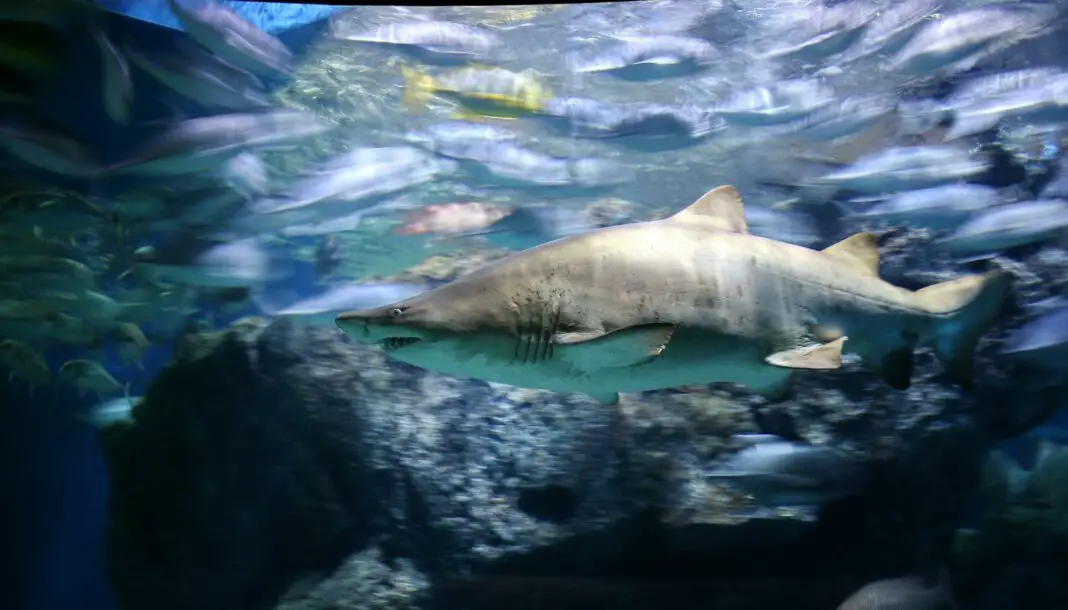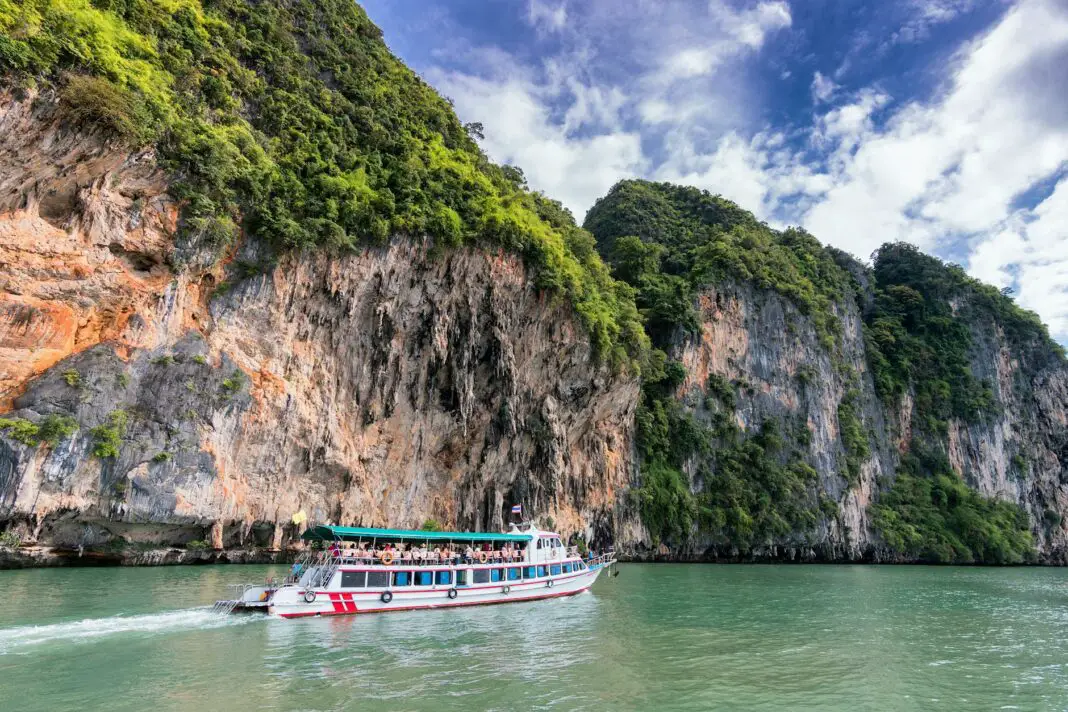Embarking on a trip to Thailand is more than just a vacation; it is an extraordinary journey into a land where pristine beaches, vibrant cultures, and awe-inspiring marine ecosystems converge. As travelers flock to its shores, a crucial question arises—Is Thailand’s marine conservation the secret to ocean revival? This blog post delves deep into the alluring beauty of Thailand, unveiling the integral role conservation plays in revitalizing its marine life. Discover how the enchanting waters of Thailand not only promise adventure but are also at the forefront of global marine conservation efforts.
From captivating coastal adventures to exploring the delicate balance between tourism and environmental sustainability, this post explores various aspects of Thailand’s marine conservation initiatives. You will not only learn about breathtaking diving spots but also understand how preserving these natural wonders paves the way for a healthier ocean ecosystem. The insights shared will empower travelers and beach lovers alike to appreciate their role in marine conservation while experiencing Thailand’s astonishing beauty.
Thailand boasts an impressive array of stunning destinations that create unforgettable experiences for every kind of traveler. The picturesque islands of Koh Phi Phi and Koh Tao are renowned for their breathtaking beaches, turquoise waters, and vibrant marine life. Imagine stepping into crystal-clear waters and being greeted by colorful coral reefs teeming with exotic fish. Such encounters heighten the sense of wonder and connection to nature, making every dive an exhilarating exploration of underwater beauty.
On the mainland, places like Krabi and Phuket offer not only marvelous beaches but also captivating cultural experiences. The fusion of land and sea creates a picturesque backdrop, allowing travelers to engage with both nature and local traditions. Exploring the vibrant street markets, indulging in local delicacies, and participating in cultural festivals enhance the overall travel experience while highlighting the importance of sustainable practices that contribute to marine conservation. Every corner of Thailand invites adventure and discovery, ultimately urging visitors to become stewards of the environment.
The significance of marine conservation cannot be overstated as it plays a critical role in maintaining the vitality of our oceans. The health of marine ecosystems directly impacts the world’s climate, biodiversity, and, ultimately, human survival. Protecting coral reefs, fish populations, and ocean habitats ensures that marine life can thrive, supporting food sources, livelihoods, and tourism industries. In Thailand, preserving marine environments enhances the overall travel experience, marking a commitment to sustainability that resonates with conscientious tourists.
Additionally, marine conservation reduces the adverse effects of overfishing, pollution, and climate change, enabling ecosystems to regenerate and flourish. As awareness grows, both locals and tourists are recognizing their responsibility to protect these invaluable resources, leading to a collective movement towards sustainable practices. Every snorkeling trip or dive expedition becomes an opportunity to contribute to marine health, where the simple act of enjoying nature transforms into a deeper purpose of preservation and restoration.
Numerous initiatives highlight Thailand’s commitment to marine conservation, showcasing an inspiring model for global efforts. Programs such as the Coral Triangle Initiative focus on biodiversity conservation, ensuring that vital ecosystems receive protection while fostering sustainable fisheries management. Marine protected areas, including the renowned Similan Islands and Surin Islands National Parks, preserve essential habitats and promote ecological resilience. These protected zones have become sanctuaries for vibrant marine life, allowing ecosystems to regenerate while simultaneously attracting ecotourism, creating a win-win situation.
Moreover, community-driven programs engage local people in conservation efforts, reinforcing the significance of sustainable livelihoods intertwined with marine health. Many coastal communities are now engaged in responsible fishing practices and reef restoration projects, promoting awareness and stewardship. Ultimately, these initiatives create a positive ripple effect, where marine conservation doesn’t just support nature, but also boosts local economies and enhances cultural heritage, illustrating how interconnected our well-being is with the health of our oceans.
Sustainable tourism is a crucial driver for conservation efforts in Thailand, weaving together the interests of travelers and environmental stewardship. As tourists increasingly seek authentic experiences that resonate with their values, destinations that prioritize marine conservation become appealing choices. The burgeoning ecotourism sector showcases how responsible travel can support conservation projects, proving that mindful adventures can coexist with the well-being of the environment. Diving schools, eco-friendly resorts, and guided tours now emphasize responsible wildlife viewing and minimize their ecological footprints.
Travelers who prioritize marine conservation are not just passive observers; they engage actively in initiatives that promote environmental restoration. The sustainability of popular destinations is vital, as over-tourism can lead to ecological degradation. By choosing to support initiatives that prioritize conservation, travelers contribute directly to the protection of marine ecosystems while simultaneously enjoying the enchanting beauty and vibrant culture intertwined with Thailand’s coastal regions. This emerging trend not only enriches the travel experience but empowers individuals to be part of the solution for ocean revival.
Travelers looking to integrate marine conservation into their adventures can adopt a few straightforward yet impactful practices. First, choose eco-friendly accommodations that prioritize sustainable practices, such as water conservation and responsible waste management. Participating in local conservation programs or beach clean-ups can provide hands-on opportunities to give back while fostering a sense of community. Discovering businesses that donate a portion of their profits to conservation can amplify your positive impact simply by choosing where to spend your money.
Additionally, opt for responsible tour operators that prioritize education and sustainability. Engaging with knowledgeable guides can enrich your understanding of marine ecosystems while reinforcing the importance of their preservation. Educating oneself about local issues surrounding marine conservation will also enhance appreciation for the delicate balance of nature. Every small action, from reducing plastic usage to advocating for sustainable practices, contributes to the broader movement for ocean revival. By being an informed and responsible traveler, every visit to Thailand becomes a journey towards a sustainable future.
The journey through Thailand’s breathtaking landscapes reveals a deeper narrative woven into its vibrant marine life and cultural richness. The efforts towards marine conservation are not merely scientific; they are essential to the survival of both ocean ecosystems and the livelihoods that depend on them. Embracing green travel habits and supporting local conservation initiatives sparks a significant impact, allowing travelers to connect meaningfully with nature while enhancing their experiences.
As tourism evolves, the collective responsibility lies with individuals to advocate for sustainable practices, demanding that the beauty of Thailand remains preserved for future generations. By diving into the vibrant waters of Thailand, you are not just a tourist; you become an integral part of a movement advocating for healthier oceans. It is an opportunity to weave together travel with purpose, ensuring that the secret to ocean revival becomes a journey for everyone passionate about nature.
- What are some popular marine conservation projects in Thailand? Several prominent projects include the Coral Triangle Initiative and various community-backed reef restoration efforts on islands like Koh Tao.
- How can I participate in marine conservation while visiting Thailand? Engage in local conservation programs, choose eco-friendly accommodations, and support businesses committed to sustainability.
- What are the best areas for diving and exploring marine life in Thailand? Top diving spots include the Similan Islands, Koh Tao, and Koh Phi Phi, offering vibrant coral reefs and diverse marine species.
- How does sustainable tourism impact local communities in Thailand? Sustainable tourism fosters economic growth while supporting environmental initiatives, improving the quality of life for local communities.
- Why is marine conservation essential for global health? Healthy oceans contribute to biodiversity, support food sources, and regulate climate, making their conservation vital for the planet’s well-being.
Image Credit: Pexels





